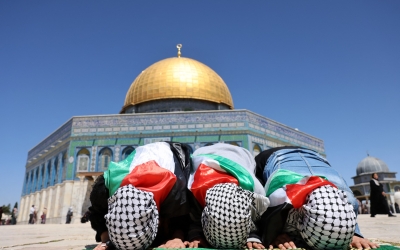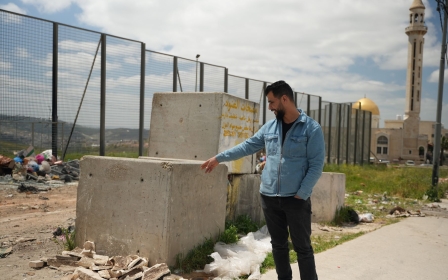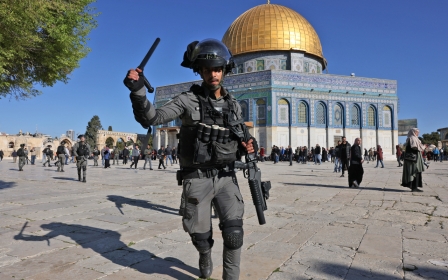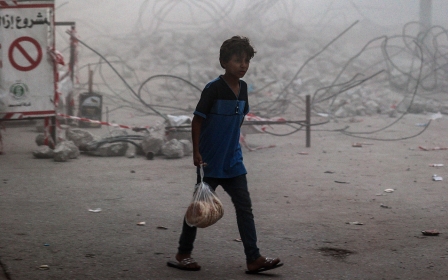150 calls in 48 hours: International mediators press Hamas to avoid war with Israel
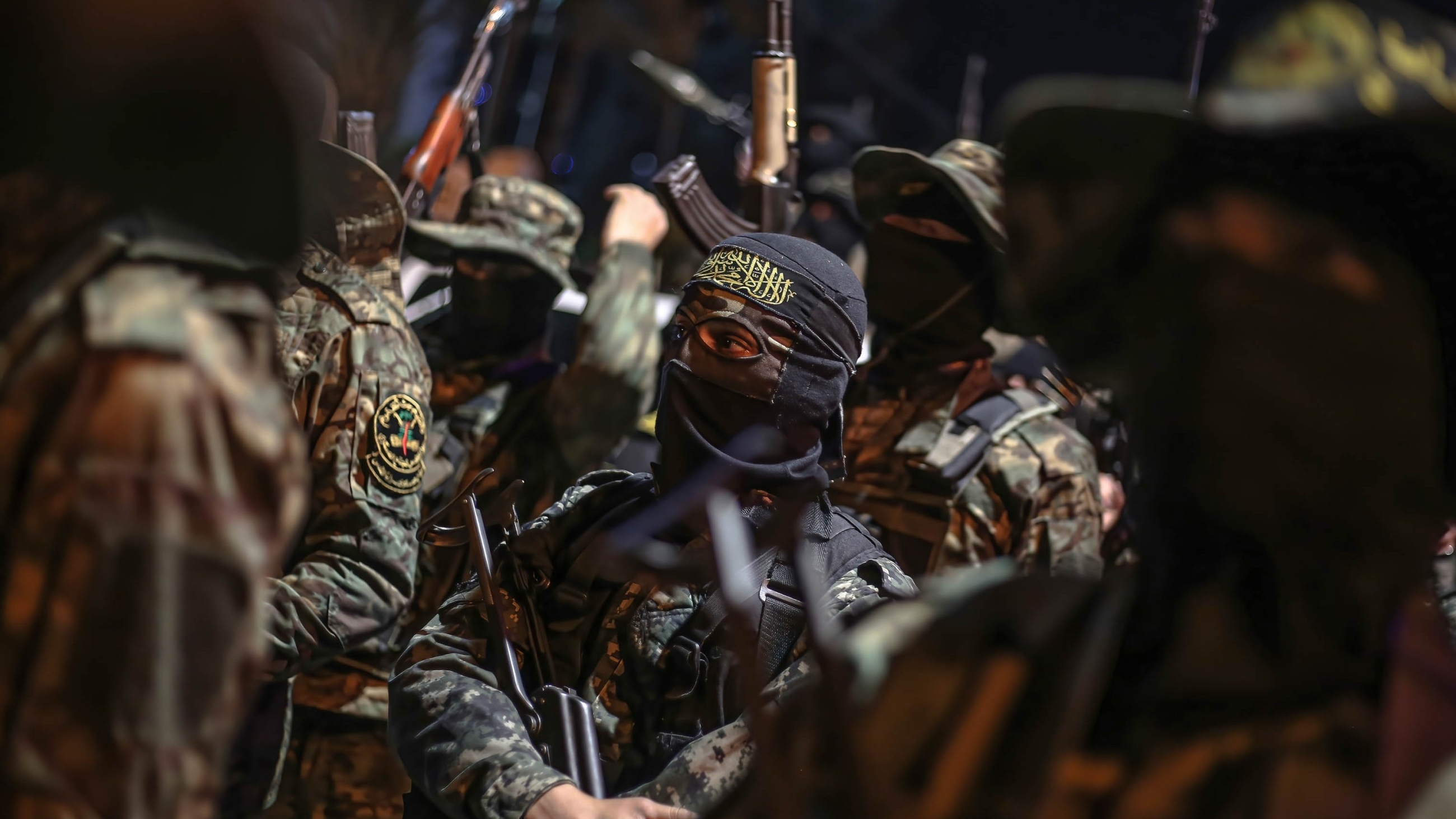
The Palestinian Hamas movement has received 150 calls in 48 hours from various parties as unremitting mediation efforts attempt to prevent war in the Gaza Strip following repeated violent Israeli raids across the occupied West Bank and East Jerusalem.
A source close to Hamas, which governs Gaza, told Middle East Eye that the United States, a party not traditionally involved in mediation, has indirectly approached the movement with the aim of maintaining calm on the Gaza front.
More than two million Palestinians are packed into Gaza, an area the size of the US city of Detroit. Palestinians in Gaza have been surviving under a brutal Israeli economic and military blockade since 2006, with the Strip described as "the world's largest open-air prison".
'The war bill this time will be very high. Therefore each party is trying to postpone this confrontation'
- Thabet al-Amour, analyst
A missile was fired from Gaza into Israel on Monday, to which Israel responded a few hours later with air strikes targeting Hamas sites, raising fears of the collapse of mediation efforts, which have so far succeeded in keeping the blockaded enclave away from any direct engagement amid heightened tensions elsewhere.
In the past month, Israeli forces have killed at least 16 Palestinians in various military raids in the occupied West Bank while 14 Israelis were killed in four lone-wolf attacks by Palestinians.
New MEE newsletter: Jerusalem Dispatch
Sign up to get the latest insights and analysis on Israel-Palestine, alongside Turkey Unpacked and other MEE newsletters
Tensions are at a high this week as Israeli forces continue to assault worshippers at al-Aqsa Mosque in Jerusalem and remove them from the complex daily to allow Israeli settlers to tour the revered site.
According to sources and political analysts with knowledge of the matter, Hamas is not interested in a new war and is content with only escalating the "language of threat", a position demonstrated by its rapid communication with Egypt to relay that it was not responsible for the missile attack.
Hamas, sources say, has been trying to contain the activities of its ally the Palestinian Islamic Jihad (PIJ), using "sharp language" and warning against unilateral escalation following threats against Israel made by its Beirut-based secretary-general, Ziad al-Nakhala. Hamas's efforts appear to have paid off, they added, as the PIJ has so far shown restraint.
In talks with Egyptian mediators, the PIJ denied responsibility for the missile fired from Gaza and confirmed its commitment to the decisions issued by the Joint Operations Room, which consists of all the main armed factions in Gaza.
A source close to Islamic Jihad revealed to MEE that the group learned its lesson when Hamas left it alone to deal with the assassination of its military commander, Baha Abu al-Atta, by Israel two years ago, an experience he described as harsh.
Now, he added, Islamic Jihad has come to realise that any war with Israel must be with the full participation of Hamas and through a decision issued by the Joint Operations Room.
Sources told MEE that, in the past few days, Hamas had arrested members of the Islamic Jihad who had tried to fire shells into Israel from the Gaza Strip on the basis that they were acting individually without coordination with their leadership, and confiscated their military equipment.
US mediation
Since the outbreak of violence in Jerusalem, with Israeli forces raiding al-Aqsa Mosque four times in the past week, Hamas has emerged as a major player, with Arab and foreign mediators seeking contact with the movement.
"Hamas has become the leading player of the political movements and the backbone of the resistance," said Zaher Jabarin, a member of its political bureau who resides abroad.
Political writer Mustafa Ibrahim told MEE that Israel is talking about an indirect US mediation with Hamas, because Washington does not want a war that would divert attention from the Russian war on Ukraine. European states are also directly communicating with Hamas for that same goal, he added.
This information is consistent with what has been reported in the Israeli media about involvement by the United States and Turkey in the "mediation line" between Hamas and Israel.
Ibrahim said that, following the resumption of Turkey's relations with Israel, Ankara has been making efforts for some time and has expressed its willingness to mediate on the issue of a prisoner exchange deal with Hamas, if it will lead to a sustainable calm.
A Palestinian source close to Hamas, meanwhile, said that Israel has initiated a request for the intervention of these mediations, and relayed indirect messages to Hamas that it was not interested in a new military confrontation with Gaza.
While Israel emphasised its keenness to maintain calm on the Gaza front, Ibrahim said, it has also threatened an unprecedented military response if it was attacked by Palestinian factions in Gaza.
Through the "indirect negotiations" between Hamas and Israel carried out through mediators, both sides have shown their unwillingness to fight a new war, at least for the time being.
Jabarin said that Hamas's messages to Israel were clear about the necessity of "constraining" Israel and stopping its attacks in occupied Jerusalem and occupied West Bank cities.
A pricey war
Hamas identified to mediators what Jabarin described as "red lines" that it, along with other Gaza factions, cannot tolerate, including any Israeli aggression, most notably with regards to al-Aqsa Mosque and assassinations in the West Bank.
According to Jabarin, efforts by mediators are focused on searching for ways out and preventing the outbreak of a war in Gaza, which was devastated in Israel's military offensive last May that left 256 Palestinians killed.
"We have many means to pressure the occupation, and opening a new war on the Gaza front is one of the options if necessary," the Hamas member said.
A reliable source in Gaza told MEE that the factions in the Strip, under the direction of Hamas, are trying to distance the enclave from a broad confrontation with Israel at this stage. Instead, they are content with encouraging individual action against Israeli targets elsewhere, namely from the West Bank.
Writer and political analyst Thabet al-Amour believes neither Israel nor armed factions in Gaza want to go to war at this time, and the chances of a conflict breaking out appear to be slim unless unprecedented events occur on the ground.
"The war bill this time will be very high," Amour said.
"Therefore each party is trying to postpone this confrontation, to arrange its papers, with Gaza still suffering from the scourge and effects of the war last May and the repercussions of the 16-year siege, and the ruling coalition in Israel facing many challenges and internal and external crises."
This article is available in French on Middle East Eye French edition.
Middle East Eye delivers independent and unrivalled coverage and analysis of the Middle East, North Africa and beyond. To learn more about republishing this content and the associated fees, please fill out this form. More about MEE can be found here.


